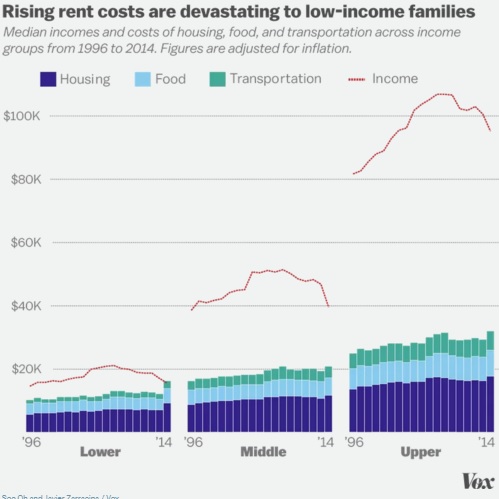
A new analysis from The Pew Charitable Trusts shows that low-income Americans are experiencing a massive increase in housing costs that makes it impossible for some to afford basic needs. The study found that low-income Americans spent a median of $6,897 on housing in 2013, and that number rose to $9,178 in 2014. This was the biggest jump in the nearly 20 years of data that Pew studied. Other necessities, such as transportation and food, also have risen, but not as drastically.
Erin Currier, project director at The Pew Charitable Trusts, put the data in context:
We show in these figures that over time, [lower-income groups] consistently spend more on transportation and considerably more on housing. Lower-income renters are spending nearly half their income on rent, while upper-income groups spend about 15 percent on rent. The disparity really shows that lower-income families don’t have much slack in their budgets for mobility-enhancing investments like savings and wealth building.
One clear way to counteract these negative trends is to organize working people on the job so that they can have a collective voice that makes it easier for workers to provide for their families. When workers have a collective voice, they can negotiate for higher wages and better lives.

